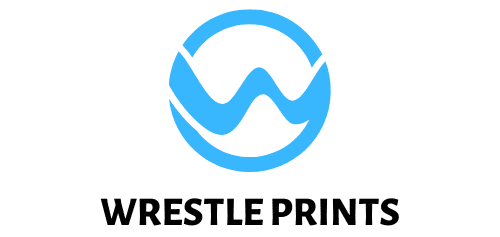What Are the Latest Content Marketing Tactics for UK Clean Beauty Brands?

In a world where consumers are more concerned than ever about the ingredients in their beauty products, clean beauty brands in the UK have a unique challenge and opportunity. They must not only create products that live up to the high standards of today’s discerning consumer, but they must also find effective ways to communicate their brand values and product benefits to a broad audience. The key to success in this endeavour, you will find, lies in a sophisticated content marketing strategy. In this article, we will explore the latest content marketing tactics that UK clean beauty brands are using to connect with consumers, build brand loyalty, and drive sales.
Harnessing the Power of Social Media
Social media has become a central platform for beauty brands to engage with customers, showcase their products and tell their brand story. Instagram, in particular, has proven to be an invaluable tool for the beauty industry, with its visually-orientated platform providing the perfect canvas for brands to showcase their products in an aesthetically pleasing way.
A lire en complément : How Can Independent UK Toy Stores Compete with Online E-commerce Giants?
UK clean beauty brands are leveraging social media not just to promote products, but to educate consumers about the clean beauty industry and the benefits of their products. They use a mix of product photos, educational infographics, user-generated content, and behind-the-scenes looks at product creation to create a comprehensive brand image that resonates with consumers.
Moreover, they are increasingly using Instagram Stories and IGTV to provide more in-depth content, such as tutorials, product demonstrations, and founder interviews. These tactics help to humanise the brand, nurture a strong connection with consumers, and provide a platform for brand values such as transparency and authenticity.
Sujet a lire : What Are the Best CRM Solutions for UK Small Business Service Providers?
Creating High-Quality, Educational Content
Clean beauty brands are focusing on creating high-quality, educational content to position themselves as thought leaders in the industry. This strategy enables them to attract consumers who are actively seeking information about clean beauty products and are more likely to become loyal customers.
Blogs, how-to guides, ingredient glossaries, and eBooks are all part of the content mix that these brands use to educate their audience. For example, a blog post about the dangers of certain chemicals found in traditional beauty products can be a powerful tool to not only inform consumers but also to subtly promote the benefits of their own clean products.
High-quality, educational content is not just beneficial for consumers, it’s also favoured by search engines. By creating content that fulfils the informational needs of consumers, brands can improve their search engine rankings, increasing the visibility of their products to a wider online audience.
Collaborations with Influencers and Brand Ambassadors
Influencer marketing continues to be a powerful tool for clean beauty brands in the UK. Collaborating with influencers and brand ambassadors who embody the brand’s values and have a genuine passion for clean beauty can be an effective way to reach new audiences and build trust with consumers.
Influencers offer authenticity and relatability that can be hard for brands to achieve on their own. Moreover, they can provide valuable user-generated content that can be shared across the brand’s own channels.
While big-name influencers can certainly drive brand awareness, many clean beauty brands are finding success with micro-influencers – individuals with smaller, more engaged audiences. These influencers often have a more personal connection with their followers, which can lead to higher engagement rates and more effective influencer campaigns.
Personalisation and Customised Content
Personalisation has become a significant trend in content marketing, and clean beauty brands are no exception. Brands are leveraging customer data to deliver customised content and product recommendations to their audience, creating a more personalised and engaging consumer experience.
Customised content can take many forms, from personalised emails and product recommendations to skincare routines tailored to the individual’s skin type and concerns. This level of personalisation can significantly increase consumer engagement and loyalty, as customers feel understood and valued by the brand.
Interactive Content and Experiences
The latest trend in content marketing for clean beauty brands is the creation of interactive content and experiences. This can include quizzes to help consumers find the right products for their skin type, virtual try-on tools, or augmented reality features that allow consumers to ‘experience’ the product before purchasing.
Interactive content is not only engaging but can also provide valuable consumer insights. For example, data gathered from a skin type quiz can help brands to understand their audience better and tailor their product development and marketing strategies accordingly.
In sum, the landscape of content marketing for UK clean beauty brands is dynamic and evolving, driven by consumer demands for transparency, education, and personalised experiences. To stay ahead of the competition, brands must continually innovate and adapt their content marketing strategies to meet these changing consumer needs.
Engaging with Consumers via Podcasts and Webinars
Podcasts and webinars are an emerging trend in the beauty industry. They provide an excellent platform for clean beauty brands to engage with their audience on a deeper level. Through these channels, brands can share their knowledge and passion for clean beauty, establish their authority in the industry, and build stronger relationships with their customers.
Podcasts are increasingly popular due to their convenience and versatility. They allow brands to reach consumers during their commute, at the gym, or while they are doing chores. The intimate nature of podcasts makes it feel like a one-on-one conversation with the brand, fostering a sense of connection and loyalty.
Webinars, on the other hand, provide an interactive platform where brands can educate their audience about clean beauty. They can delve into topics like the science behind clean beauty, the benefits of specific ingredients, and provide live demonstrations of how to use their products. Webinars also allow real-time Q&A sessions, fostering a two-way dialogue between the brand and the consumer.
UK clean beauty brands are utilising these channels to not only promote their products but to drive the conversation around clean beauty forward. Brands like Drunk Elephant have successfully used podcasts to spotlight industry trends, discuss their product development process, and share behind-the-scenes stories, building a deeper bond with their target audience.
Embracing User-Generated Content
User-generated content (UGC), such as reviews, testimonials, and consumer-created photos or videos, is a powerful tool in the digital marketing strategy of clean beauty brands.
UGC builds trust and credibility as it comes directly from consumers who have used the products. It’s a form of digital word-of-mouth that can significantly boost brand awareness and conversion rates. Clean beauty brands are increasingly promoting UGC on their social media platforms, websites, and even in their email campaigns.
To encourage UGC, brands can run social media contests, offer incentives for reviews, or set up a hashtag for customers to share their product experiences. It’s essential for brands to actively engage with this content, responding to comments, sharing the content on their own platforms, and thanking consumers for their input.
Drunk Elephant, for example, regularly shares user-generated content on its Instagram page, creating a sense of community and increasing engagement among its followers. By embracing UGC, clean beauty brands can foster a sense of trust and authenticity, crucial elements in building a loyal consumer base.
In conclusion, UK clean beauty brands are utilising a multitude of content marketing tactics to connect with their audience and promote their products. From harnessing the power of social media, creating educational content, collaborating with influencers, personalising their marketing strategies, introducing interactive content, engaging consumers via podcasts and webinars, to embracing user-generated content, each tactic plays a significant role in strengthening the brands’ presence in the beauty industry.
As consumers continue to seek transparency and authenticity in their beauty products, clean beauty brands will need to stay ahead of the industry trends. They must be innovative, adaptable, and consistently deliver value to their target audience through their content marketing efforts. By doing so, they will not only drive sales but also elevate the perception of the clean beauty industry and contribute to a healthier, more sustainable future for personal care.
